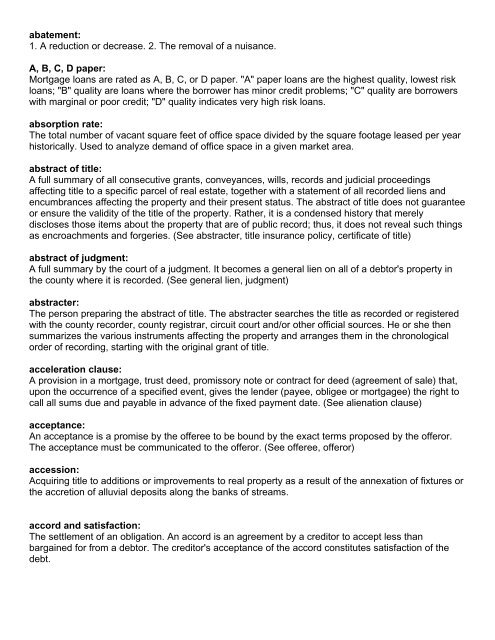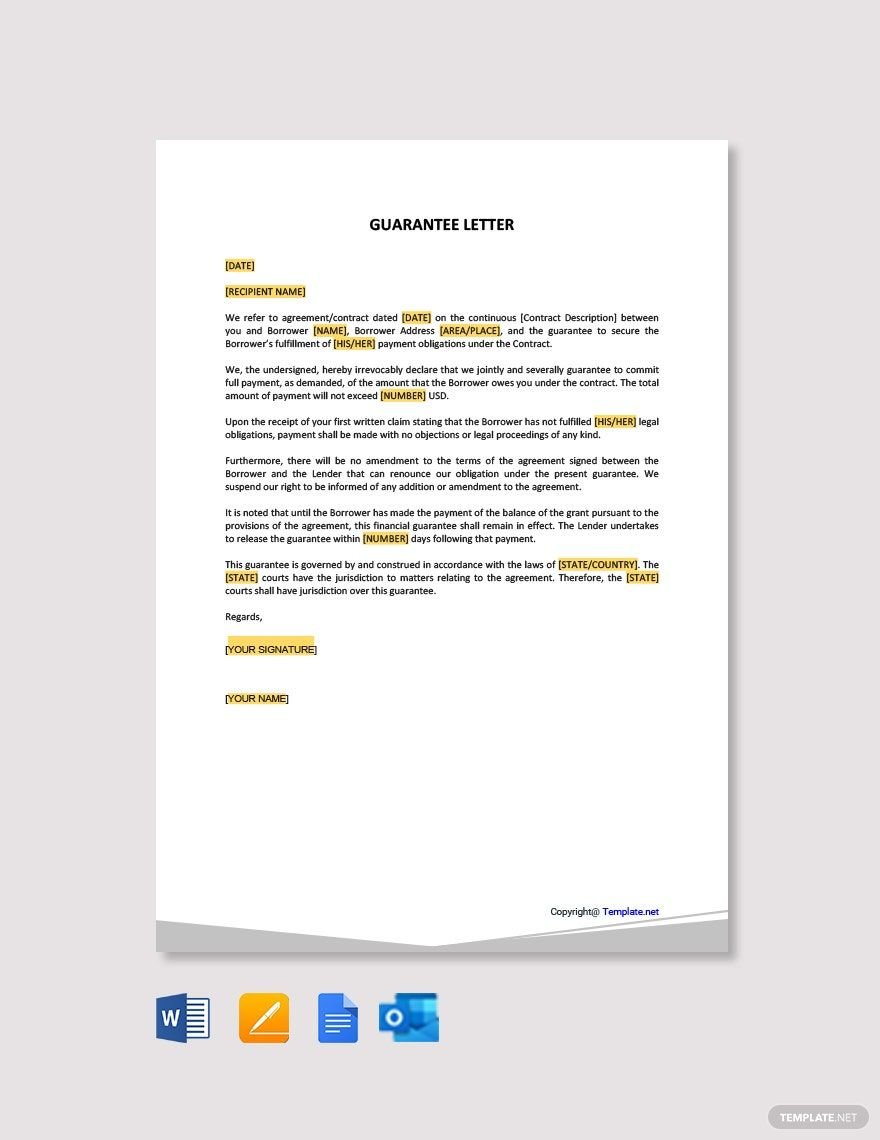What Happens If a Promissory Note is Not Signed? Guaranteed Consequences Revealed
If a promissory note is not signed, it may not be legally enforceable. In such a case, the party may not be obligated to fulfill the terms of the note.
A promissory note serves as a written agreement between a borrower and a lender. It outlines the terms and conditions of a loan or debt, including the amount borrowed, the interest rate, and the repayment schedule. However, for the promissory note to be legally binding, it must be signed by both parties involved.
If a promissory note is not signed, it may not hold up in court, and the borrowing party may not be legally bound to repay the debt. This could potentially lead to disputes and difficulties collecting the owed amount. Therefore, it is crucial for all parties involved to sign the promissory note to ensure its legal validity and enforceability.

Credit: www.yumpu.com
Consequences Of An Unsigned Promissory Note
An unsigned promissory note can have serious consequences, potentially rendering it unenforceable in a court of law. Without a signature, the note’s validity may be challenged, causing legal complications and hindering the lender’s ability to collect on the debt. It is essential to ensure all parties sign the promissory note to protect everyone’s rights and interests.
When parties enter into a financial agreement, it is essential to ensure that all required paperwork, including promissory notes, are properly executed. A promissory note serves as a legal contract outlining the terms of a loan or debt, including the borrower’s obligations to repay the debt. However, what happens if a promissory note is not signed? In this article, we will explore the potential consequences of an unsigned promissory note, providing valuable insights for borrowers and lenders alike.
Legal Implications
In a legal sense, an unsigned promissory note may not be considered a valid and enforceable contract. Without the signature of the borrower or the borrower’s representative, a promissory note lacks an essential element required for it to be legally binding. This means that the lender may face challenges in pursuing legal remedies or enforcing the terms of the agreement, potentially leaving them without recourse in the event of default or non-payment.
Enforceability At Risk
Without a signed promissory note, the enforceability of the agreed-upon terms may be at risk. In the absence of a signed document, there may be disputes regarding the actual terms of the loan, such as the interest rate, repayment schedule, or any additional conditions agreed upon by both parties. These uncertainties could lead to protracted legal battles, causing financial strain and uncertainties for both the borrower and lender.
Impact On Borrower’s Obligations
For borrowers, failing to sign a promissory note can also have significant consequences. By not signing the promissory note, borrowers may unintentionally weaken their legal protections or fail to fully understand their obligations. The absence of a signed document may result in confusion or disputes over the terms of the loan, potentially leading to disagreements and strained relationships between the lender and borrower.
Furthermore, without a signed promissory note, borrowers may face difficulties in providing evidence of their debt obligations, which can complicate matters when dealing with creditors, credit bureaus, or other financial institutions in the future. This lack of documentation may also hinder a borrower’s ability to access future credit or financing opportunities due to uncertainties surrounding their financial responsibilities.
In summary, failing to sign a promissory note can have far-reaching consequences for both lenders and borrowers alike. The absence of a signed document not only raises questions about the enforceability of the agreement but also undermines the clarity and certainty of the loan terms. To protect the rights and interests of all parties involved, it is crucial to ensure that promissory notes are properly executed, signed, and legally binding.
Options For Addressing An Unsigned Promissory Note
It is crucial for all parties involved in a financial transaction to carefully assess and address the details of a promissory note to ensure its validity and enforceability. However, in some cases, a promissory note may not be signed, leading to potential complications and legal uncertainties. When faced with an unsigned promissory note, there are several options that can be considered to address this issue effectively.
Negotiation With Parties Involved
When encountering an unsigned promissory note, the first course of action would be to engage in open and honest negotiations with all parties involved. This includes the lender, borrower, and any witnesses to the promissory note. By coming together to discuss the situation, all parties can explore the reasons behind the lack of signature and work towards a mutually agreed-upon solution.
The negotiation process may involve examining the intentions of the parties involved and clarifying any misunderstandings or discrepancies that may have arisen. In some instances, the lender or borrower may have valid reasons for not signing the promissory note, such as a verbal agreement or a change in circumstances. Through transparent communication and negotiation, it may be possible to find a resolution that satisfies all parties and safeguards their interests.
Consideration Of Alternative Documentation
If negotiations fail to yield a satisfactory outcome, parties involved in an unsigned promissory note may consider alternative forms of documentation to protect their interests. While a signed promissory note provides clear evidence of an enforceable agreement, other forms of documentation can serve as substitutes in certain situations. Here are a few examples:
- Written Contract: Creating a written contract that outlines the terms and conditions agreed upon by all parties involved can serve as an alternative to a signed promissory note. This document should clearly define the loan amount, repayment schedule, interest rate, and any other relevant details. It is crucial to ensure that all parties comprehend and consent to the terms specified in the written contract.
- Recorded Conversations: In situations where verbal agreements have been made but not documented, parties can leverage recorded conversations as evidence of the agreement’s existence and terms. While the exact legal weight of recorded conversations may vary depending on jurisdiction, they can be valuable tools in addressing disputes arising from an unsigned promissory note.
- Correspondence and Emails: Any written correspondence or emails discussing the terms of the loan can also serve as supporting evidence in the absence of a signed promissory note. These records can establish the intentions of the parties involved and help resolve disputes that may arise.
While utilizing alternative documentation may not provide the same level of assurance as a signed promissory note, it can help safeguard the interests of all parties involved and maintain a sense of accountability. It is crucial to consult with legal professionals familiar with contract law to ensure that alternatives to a signed promissory note are legally valid and enforceable in the relevant jurisdiction.
Best Practices To Avoid Issues With Promissory Notes
When dealing with promissory notes, it’s crucial to implement best practices to avoid potential issues. By adhering to these practices, you can ensure a smooth and enforceable transaction. Here are some key strategies to consider when handling promissory notes: “`html <h3>Clear Communication</h3> <p> <strong>Open and transparent communication</strong> between all parties involved in the promissory note transaction is essential. All terms and conditions should be clearly defined and mutually understood to prevent any confusion or disputes in the future. </p> “`html
Legal Review Of Documents
Engaging in a thorough legal review of all promissory note documents can provide assurance of their compliance with existing regulations and laws. Seeking legal counsel can help mitigate potential risks and ensure that the documents are legally sound and enforceable.
“`html <h3>Timely Execution</h3> <p> <strong>Prompt execution</strong> of promissory notes is vital to avoid any delays or complications. Ensuring that all necessary parties promptly sign the documents can prevent unnecessary holdups and uncertainties regarding the validity of the agreement. </p> “`
Credit: www.template.net

Credit: wisconsinwatch.org
Frequently Asked Questions Of What Happens If A Promissory Note Is Not Signed?
What Happens If A Promissory Note Is Not Signed?
If a promissory note is not signed, it may not be enforceable in court. The signature is a crucial element that validates the terms of the agreement and proves the borrower’s commitment to repay the loan. Without a signature, the lender may have difficulty in pursuing legal action if the borrower fails to adhere to the terms of the note.
Can A Promissory Note Be Legally Binding Without A Signature?
No, a promissory note is not legally binding without a signature. The signature represents the borrower’s agreement to the terms and conditions of the note, making it a valid and enforceable document. Without a signature, the note lacks validity and may not hold up in a court of law.
What Are The Consequences Of Unsigned Promissory Notes?
Unsigned promissory notes can have significant consequences. They may be considered unenforceable, making it difficult for the lender to collect the owed debt. In such cases, legal remedies like filing a lawsuit or seeking repayment become challenging, leaving the lender with fewer options to recover their money.
It is crucial for both parties to ensure the promissory note is properly signed and executed.
Conclusion
A promissory note without a signature may be unenforceable. It’s important to ensure all parties sign the document to make it legally binding. If a promissory note is not signed, it could lead to complications and disputes. It’s crucial to follow legal requirements when creating and signing promissory notes to avoid potential issues in the future.
{ “@context”: “https://schema.org”, “@type”: “FAQPage”, “mainEntity”: [ { “@type”: “Question”, “name”: “What happens if a promissory note is not signed?”, “acceptedAnswer”: { “@type”: “Answer”, “text”: “If a promissory note is not signed, it may not be enforceable in court. The signature is a crucial element that validates the terms of the agreement and proves the borrower’s commitment to repay the loan. Without a signature, the lender may have difficulty in pursuing legal action if the borrower fails to adhere to the terms of the note.” } } , { “@type”: “Question”, “name”: “Can a promissory note be legally binding without a signature?”, “acceptedAnswer”: { “@type”: “Answer”, “text”: “No, a promissory note is not legally binding without a signature. The signature represents the borrower’s agreement to the terms and conditions of the note, making it a valid and enforceable document. Without a signature, the note lacks validity and may not hold up in a court of law.” } } , { “@type”: “Question”, “name”: “What are the consequences of unsigned promissory notes?”, “acceptedAnswer”: { “@type”: “Answer”, “text”: “Unsigned promissory notes can have significant consequences. They may be considered unenforceable, making it difficult for the lender to collect the owed debt. In such cases, legal remedies like filing a lawsuit or seeking repayment become challenging, leaving the lender with fewer options to recover their money. It is crucial for both parties to ensure the promissory note is properly signed and executed.” } } ] }




